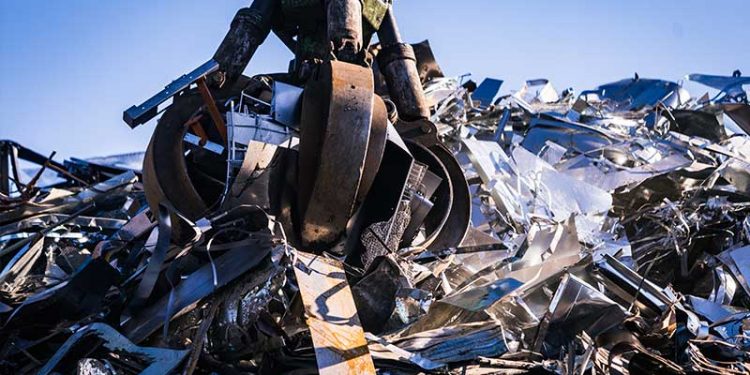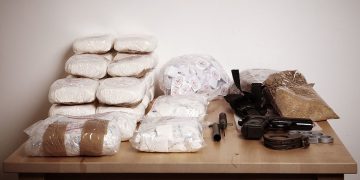PK Jena
India has modest reserves of iron ore, bauxite and coal, but little of non-ferrous metals. Considering the rise in future need for iron, aluminium and other metals, it is apprehended that mineral resources of the country may be exhausted soon. It is essential, therefore, to conserve these as much as possible and supplement requirements by recovering metal values from secondary sources.
Metal scrap is of two types, new and old. Metals of different forms generated in an industrial setting, either in production or fabrication, are called new scrap. Old scrap, in turn, may be found in discarded infrastructure, automobiles, industrial equipment, and consumer goods, among other sources. New scrap produced in industries are generally least contaminated and can be easily purified and reused. Old scrap, being heterogeneous, with lots of alloying elements, plastics, glass and wood, need to be processed first to recover the principal metal.
Processing scrap for reuse offers several advantages. By reusing scrap and rejected metallic materials, mineral resources from mines can be conserved. Such reuse can avoid environmental hazards caused by metallic and other such refuse.
Reusing metallic wastes involves least expenditure compared with extracting metals and minerals from mines. It is also attractive from the energy point of view. For instance, steel produced from iron ore consumes about three-and-a-half times more energy than steel from scrap; similarly, producing copper from its ore requires five to seven times more energy than what is required to recover metal from scrap. Also, aluminium obtained from bauxite requires about 20 times more energy than that from recycling scrap.
Besides, infrastructure, water, energy, space and such requirements to extract metal from minerals, are far higher than producing metal from scrap. In view of these, efforts are being made world over to recover metal from scrap generated from different sectors of human activity, particularly municipal solid waste stream and industrial wastes.
Old scrap and municipal solid wastes are primary sources of metal. Old buildings, bridges, rail roads, steel containers, packaging materials, rejected aluminium structures, cans, old automobiles, lead acid batteries, old electrical and electronic equipment are among important sources of metal. In 1995, in the US, about 31 per cent of durable steel goods (2.4 million metric tonnes), 54 per cent of steel containers and packaging materials (1.4 MMT) were recovered. Similarly, 0.9 MMT of aluminium cans, 0.825 MMT led acid batteries, 6.6 MMT of discarded containers and 2.2 MMT of packaging materials were also recovered. At present, with further increase in industrialisation in the US and other parts of the world, huge quantities of scrap are being generated and the metal from these can be recovered and reused in an environment-friendly manner.
Similarly, in industries, large amount of secondary metal scrap, dross and dust are generated and these should be recovered. For instance, ash from coal combustion contains considerable amounts of the oxides of silicon, iron, aluminium and other metallic oxides. Iron oxides can be separated magnetically, the ash can be melted to produce ferro silicon and the aluminium rich slag. The secondary sources containing metals also include slags, dross and flue dust. Electric Arc Furnace (EAF) dust, for instance, contains considerable amounts of oxides of metals such as zinc, lead and cadmium; copper converter slag contains appreciable amounts of nickel and cobalt, along with copper; tin extraction slag contains large amounts of refractory metals such as niobium, tantalum, zirconium and titanium.
Automobiles form the largest single source of scrap metals. They contain a lot of iron and steel besides non-ferrous metals such as aluminium. In 1993, iron and steel comprised 90 per cent of the weight of old scrap recycled in the US, although it represented only 42 per cent of the metal value. In value terms, aluminium follows with 26 per cent, copper with 15 per cent, and gold with 10 per cent of old scrap value.
In India, with growing demand for various types of metals and alloys, sincere efforts should be made to systematically collect scrap and other metal containing wastes from the industrial sector besides municipal wastes for recovery of all metal values. It is highly essential for our sustainable development.
The writer is former director general, Council of Scientific & Industrial Research, India.






































